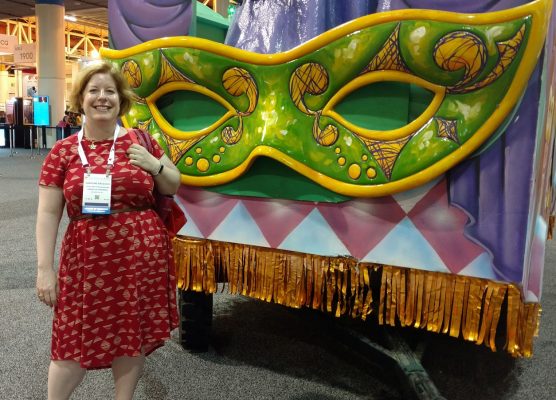It’s been about a month since ALA Annual 2018, held in New Orleans, Louisiana, but it’s never too late for a subject-related update! As the CIP and Dewey Program Manager at the Library of Congress, it is both my pleasure and my responsibility to attend many subject-related meetings and programs. The OCLC Dewey Update Breakfast met at 7:00 AM on Saturday morning, as it does every ALA, with an interesting set of presentations on what’s new with the Dewey Decimal Classification (DDC). Alex Kyrios, OCLC Dewey editor, updated the attendees on changes to the DDC based on Dewey Editorial Policy Committee (EPC) exhibits from electronic meetings EPC-140A and EPC-140B; notable topics included vegan cooking, electronic games, and child rearing, among several others. (Exhibits are proposal documents prepared by OCLC Dewey editors that provide narrative about the proposed changes, usually followed by sample hierarchies with the proposed new notation and/or notes and excerpts from the Relative Index for context; this helps EPC members understand the proposed changes and how those changes would affect the overall DDC.) Alex discussed some new features in WebDewey, such as the link to the DDC 23 Manual in WebDewey and the long-awaited ability for users, like me, to contribute built numbers for editorial vetting. (Now I’ll need to go looking for all the numbers I have built in the 400s to contribute them.) Finally, I gave a talk on the long-standing collaborations between OCLC editors and LC Dewey classifiers. This may come as a surprise to many of you, but the OCLC Dewey editors sit next to the LC classifiers at the Library of Congress, and we meet on a monthly basis to discuss trends, exhibits, and other issues related to the DDC and its application.
As the LC Dewey Liaison to the Association for Library Collections and Technical Services/Cataloging and Metadata Management Section/Subject Analysis Committee, or ALCTS/CaMMS/SAC, or even more simply SAC (read: “sack”) for short, I submit a formal written report and then speak briefly at the meeting on what’s new in the LC Dewey Program. My report is part of a trio of Dewey-related reports: the ALA representative to the EPC gives a report on recent EPC decisions; the OCLC Dewey representative gives DDC and WebDewey updates; and the LC Dewey liaison reports on LC Dewey news. At this meeting, members of various subject-related communities, such as the American Association of Law Libraries, the Art Libraries of North America, and the Music Library Association, give their reports. SAC has also reports from its own subgroups, the SAC Research and Presentation Working Group and the SAC Subcommittee on Faceted Vocabularies. There is, of course, the report from the IFLA Liaison to SAC, SAA’s own George Prager. Finally, the LC Liaison from the Policy and Standards Division (PSD), Janis L. Young, gives her written and oral report to the committee.
Janis announced at the ALA Annual 2018 SAC meeting that PSD will cancel “multiple” subdivisions from Library of Congress Subject Headings (LCSH) beginning in fall 2018. “Multiple” subdivisions are a special type of subdivision that automatically gives free-floating status to analogous subdivisions used under the same heading. In the example Computers—Religious aspects—Buddhism, [Christianity, etc.], the multiple subdivision is —Buddhism, [Christianity, etc.]. This policy change results from the need to provide unique identifiers for each valid subject string to facilitate linked data. Please contact Janis Young with any questions about this change. Of particular interest to law librarians may be that the Library of Congress Classification schedules KIM-KIP: Indigenous Law: Central America, including a comparative class for Central America and the countries Belize, El Salvador, Guatemala, Honduras and Nicaragua, are now available in Classification Web. Finally, one of my favorite parts of Janis’ reports lists the new and revised subject headings for inclusion in LCSH. This year we have Alcohol trafficking, Gene editing, Centaur objects, Fried chicken, and Generation Z.
These were some of the many subject-related highlights from ALA Annual 2018. I look forward to seeing you in Kuala Lumpur!
Best wishes,
Caroline Saccucci
Library of Congress
